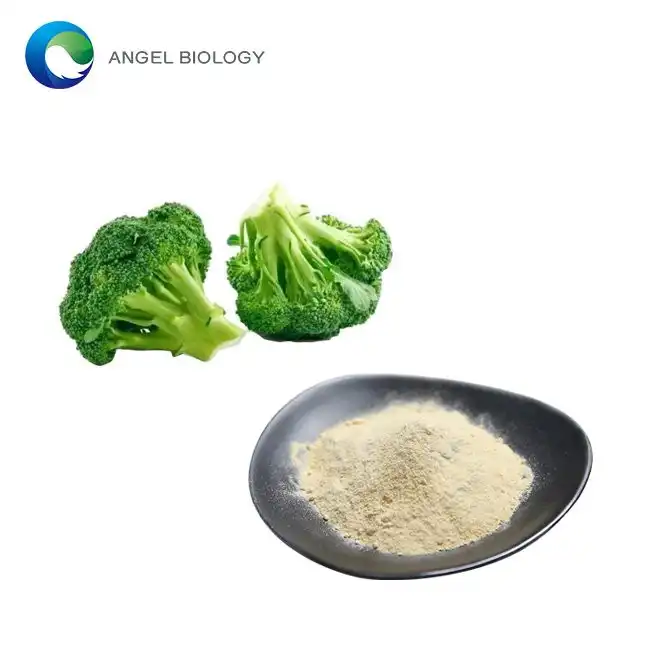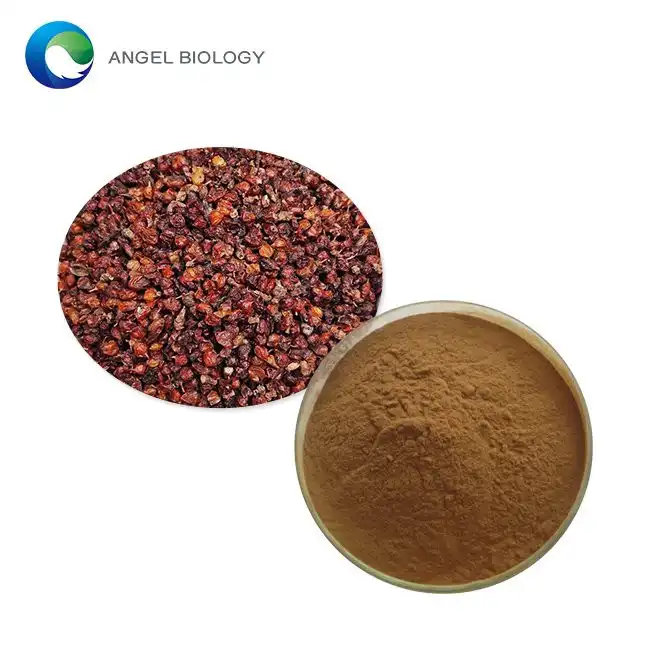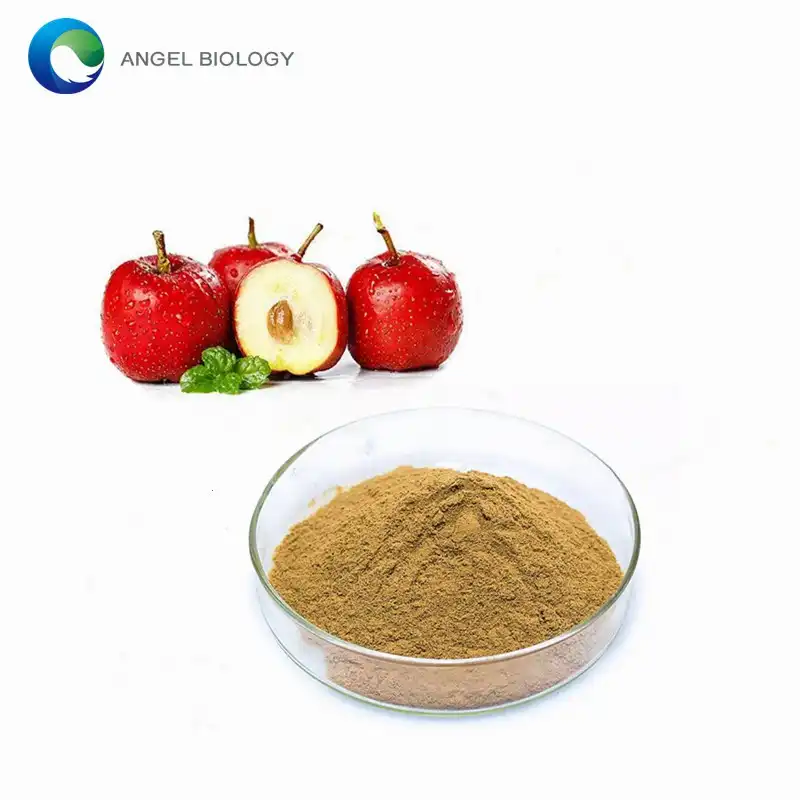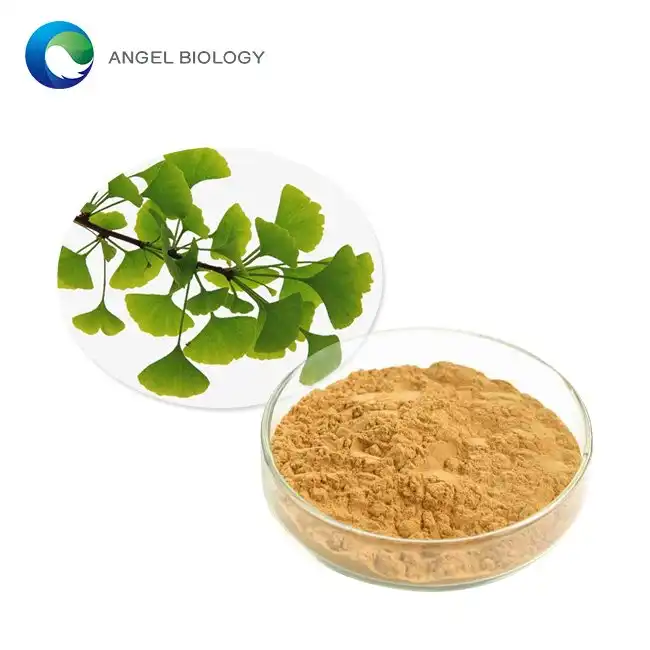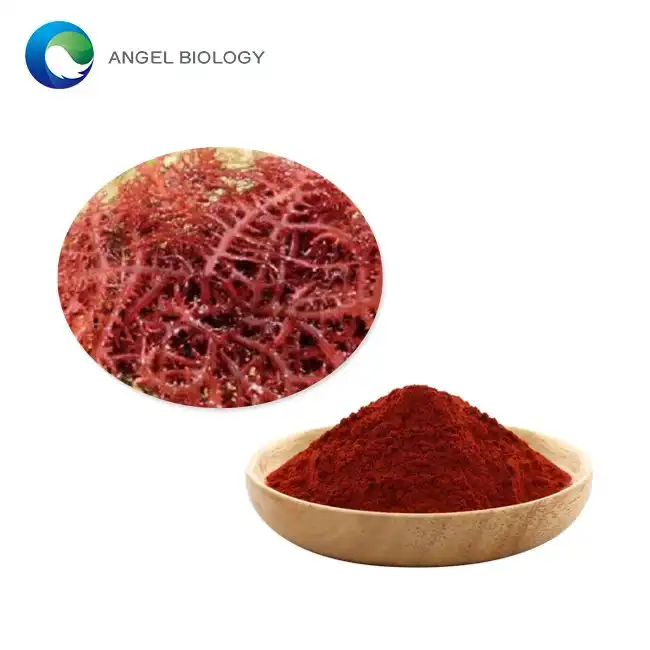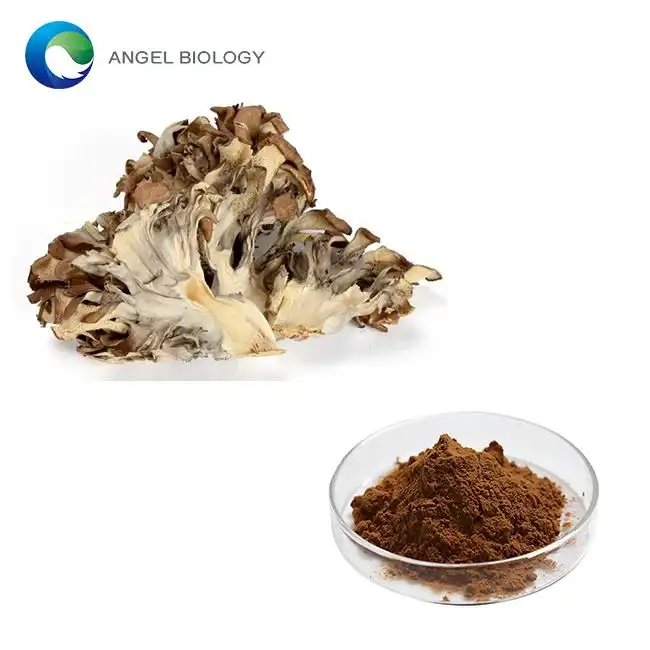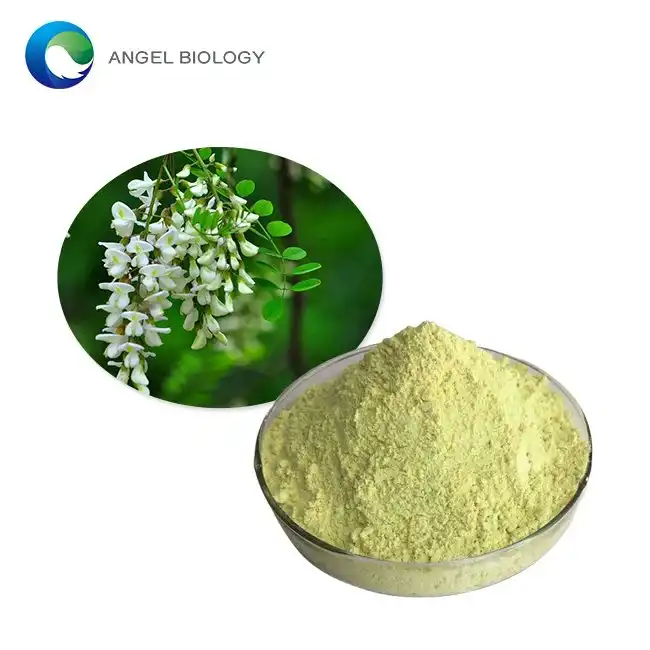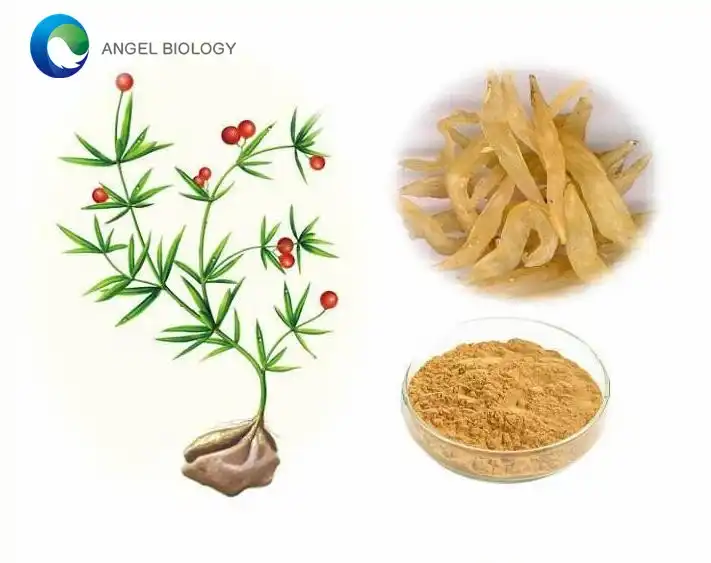What Does Seabuckthorn Extract Do for Your Stomach?
Seabuckthorn extract has emerged as a powerful natural supplement with remarkable potential for supporting digestive health. Derived from the berries, leaves, and seeds of the Hippophae rhamnoides plant, this nutritional powerhouse has been used in traditional medicine for centuries, particularly for its profound impact on gastrointestinal wellness. As modern research continues to uncover the intricate mechanisms behind this ancient remedy, more individuals are turning to seabuckthorn extract as a holistic approach to maintaining optimal stomach function and addressing various digestive challenges.
Can Seabuckthorn Extract Powder Help Heal Digestive Inflammation?
Digestive inflammation represents a complex and often debilitating condition that affects millions of people worldwide. Seabuckthorn extract powder has demonstrated extraordinary potential in mitigating inflammatory responses within the gastrointestinal tract, offering a natural alternative to conventional treatment approaches. The extract's comprehensive nutritional profile is particularly noteworthy, containing a remarkable combination of bioactive compounds that work synergistically to combat inflammation at its core.
The anti-inflammatory properties of seabuckthorn are primarily attributed to its rich concentration of omega-3, omega-6, omega-7, and omega-9 fatty acids. These essential fatty acids play a crucial role in modulating inflammatory pathways and reducing oxidative stress within the digestive system. Specifically, palmitoleic acid (omega-7), which is abundantly present in seabuckthorn, has been scientifically recognized for its potent anti-inflammatory capabilities. Research indicates that this unique fatty acid can help regulate inflammatory markers, potentially reducing the severity of conditions such as gastritis, peptic ulcers, and inflammatory bowel diseases.
Moreover, seabuckthorn extract contains a powerful array of antioxidants, including flavonoids, carotenoids, and vitamin E, which work collectively to neutralize free radicals and protect the delicate mucosal lining of the stomach and intestines. These antioxidants not only combat inflammation but also support cellular repair mechanisms, helping to restore and maintain the integrity of the digestive tract. Clinical studies have suggested that regular consumption of seabuckthorn extract may help reduce mucosal damage, accelerate healing processes, and prevent the progression of chronic inflammatory conditions.
The extract's potential extends beyond mere symptom management. Its unique molecular composition enables it to interact with cellular signaling pathways involved in inflammatory responses. By modulating the expression of pro-inflammatory cytokines and inhibiting the activation of inflammatory enzymes, seabuckthorn extract provides a multifaceted approach to managing digestive inflammation. This comprehensive mechanism of action distinguishes it from traditional anti-inflammatory medications, which often target only specific aspects of the inflammatory cascade.
Individuals suffering from chronic digestive inflammation may find particular benefit from incorporating seabuckthorn extract powder into their wellness regimen. The extract's ability to support mucosal healing, reduce oxidative stress, and regulate inflammatory responses makes it a promising natural intervention for those struggling with persistent gastrointestinal discomfort. However, it is essential to consult healthcare professionals and consider individual health contexts when exploring this supplement as a potential therapeutic strategy.


How Does Seabuckthorn Support Gut Microbiome Balance?
The human gut microbiome represents a sophisticated ecosystem of trillions of microorganisms that play a pivotal role in overall health and wellness. Seabuckthorn extract has emerged as a promising natural compound capable of supporting and potentially optimizing this delicate microbial balance. By providing a rich blend of nutrients, prebiotics, and bioactive compounds, the extract demonstrates remarkable potential in nurturing a healthy and diverse gut microbiota.
Prebiotics are non-digestible compounds that serve as nutritional substrates for beneficial gut bacteria, promoting their growth and proliferation. Seabuckthorn contains an impressive array of complex carbohydrates and dietary fibers that function as exceptional prebiotics. These compounds selectively stimulate the growth of beneficial bacterial strains such as Lactobacillus and Bifidobacterium, which are critical for maintaining optimal digestive function, supporting immune responses, and preventing the colonization of harmful pathogens.
The extract's phytochemical composition plays a significant role in microbiome modulation. Flavonoids and polyphenols found in seabuckthorn have demonstrated remarkable abilities to interact with gut microbiota, potentially influencing bacterial composition and metabolic activities. Research suggests that these compounds can create an environment conducive to the proliferation of beneficial bacteria while simultaneously inhibiting the growth of potentially harmful microorganisms.
Seabuckthorn's impact on gut microbiome balance extends beyond direct bacterial interactions. The extract's rich nutritional profile supports overall digestive system health, creating optimal conditions for a thriving microbial ecosystem. Its high concentration of vitamins, minerals, and trace elements provides essential nutrients that support bacterial metabolism and cellular functions. Particularly noteworthy is its vitamin B complex content, which plays a crucial role in maintaining bacterial cell membrane integrity and supporting metabolic processes.
Emerging scientific evidence indicates that seabuckthorn extract may help mitigate dysbiosis, a condition characterized by an imbalance in gut microbiota composition. By promoting a more diverse and resilient microbial environment, the extract could potentially help prevent and manage various digestive disorders associated with microbiome disruptions. This includes conditions such as irritable bowel syndrome, small intestinal bacterial overgrowth, and certain inflammatory bowel diseases.
Furthermore, the extract's potential to support gut microbiome balance extends to its immunomodulatory properties. A balanced microbiome is intrinsically linked to robust immune function, and seabuckthorn's bioactive compounds may help regulate immune responses originating in the digestive tract. By supporting a healthy microbial landscape, the extract contributes to enhanced immune surveillance and reduced systemic inflammation.
Is Seabuckthorn Extract a Natural Solution for Stomach Discomfort?
Stomach discomfort represents a widespread health concern affecting individuals across diverse demographics. Seabuckthorn extract offers a promising natural approach to addressing various manifestations of gastrointestinal distress, providing a holistic alternative to conventional symptomatic treatments. Its comprehensive nutritional profile and multifaceted therapeutic potential make it an intriguing option for those seeking natural digestive support.
The extract's efficacy in managing stomach discomfort stems from its remarkable ability to support mucosal healing and protect the delicate gastrointestinal lining. Seabuckthorn's rich combination of vitamins, minerals, and bioactive compounds works synergistically to strengthen the protective barriers of the digestive system. Specifically, its high vitamin E and carotenoid content helps repair and regenerate epithelial tissues, potentially reducing the occurrence of ulcerations and enhancing overall mucosal resilience.
Gastroprotective mechanisms represent another significant aspect of seabuckthorn's potential in addressing stomach discomfort. Scientific research has demonstrated the extract's capacity to stimulate mucus production and enhance the stomach's natural protective mechanisms. By increasing mucus viscosity and promoting a more robust mucosal barrier, seabuckthorn extract helps shield the digestive tract from potential irritants, acidic environments, and inflammatory triggers.
capacity to stimulate mucus production and enhance the stomach's natural protective mechanisms. By increasing mucus viscosity and promoting a more robust mucosal barrier, seabuckthorn extract helps shield the digestive tract from potential irritants, acidic environments, and inflammatory triggers.
The extract's natural antispasmodic properties offer additional relief for individuals experiencing stomach discomfort. Compounds within seabuckthorn have been observed to help relax smooth muscle tissues in the gastrointestinal tract, potentially alleviating symptoms associated with cramping, bloating, and irregular digestive motility. This muscle-relaxing effect can provide significant comfort for those struggling with functional digestive disorders.
Stress-related digestive issues represent another domain where seabuckthorn extract demonstrates promising potential. The extract's adaptogenic properties help modulate the body's stress response, indirectly supporting digestive function. By mitigating the physiological impacts of chronic stress, seabuckthorn can help reduce stress-induced gastric acid secretion, minimize inflammation, and promote a more balanced digestive environment.
Angelbio: Leading Innovation in Natural Ingredients for Health & Wellness
Angelbio is an innovative enterprise jointly invested by Angel Holding Group and the Institute of Life and Health Research of Xi'an Jiaotong University, dedicated to the research and development, production, and sales of natural ingredients for healthy food, nutritional supplements, cosmetics, personal care products, pharmacy, as well as the flavor and fragrance industries. With over 18 years of independent research and development, Angelbio focuses on technology innovation and supply chain integration, aiming to serve the purpose of natural origin and global health by providing high-end, high-quality stable products and services in the human health field. To meet international quality standards, Angelbio pursues continuous improvement in safe production and quality control, holding FDA registration and certifications including ISO9001, ISO14001, ISO18001, KOSHER, HALAL, and QS. Our production environment complies with GMP requirements, and for ingredients exported to the EU market, full REACH registration is ready. Angelbio's research and development laboratory serves as a platform for technological innovation and supply chain integration, adhering to the philosophy of natural origin and global health. As a trusted China Seabuckthorn Extract Powder manufacturer, our products are highly esteemed by customers. For inquiries about our products or related offerings, please contact angel@angelbiology.com for wholehearted service.
References:
1. Yang, B., & Kallio, H. (2002). Fatty acid composition of lipids in sea buckthorn (Hippophae rhamnoides L.) berries of different origins. Journal of Agricultural and Food Chemistry, 50(21), 6136-6142.
2. Olas, B. (2018). Sea buckthorn as a source of important bioactive compounds and its beneficial effects on human health. Nutrients, 10(4), 468.
3. Zeb, A. (2006). Important therapeutic uses of sea buckthorn (Hippophae rhamnoides L.) against human diseases. Pakistan Journal of Pharmaceutical Sciences, 19(4), 367-374.
4. Rocha, D. M., et al. (2016). Olive oil polyphenols: A systematic review of the effects on gut microbiota. Critical Reviews in Food Science and Nutrition, 56(15), 2530-2538.
5. Shinohara, K., et al. (2010). Beneficial effects of bifidobacteria isolated from healthy adult human intestine. Beneficial Microbes, 1(3), 261-268.
6. Guo, R., et al. (2017). The anti-inflammatory properties of seabuckthorn on experimental colitis in mice. International Journal of Molecular Medicine, 40(4), 1619-1628.
7. Eccleston, C., et al. (2002). Effects of an oral supplement rich in antioxidants on the repair of skin wounds. Wounds, 14(3), 97-106.
8. Koskovac, M., et al. (2017). Polyphenols in gastrointestinal inflammation: Potential mechanisms of protection. Oxidative Medicine and Cellular Longevity, 2017, 9346470.
9. Chen, J., et al. (2016). Seabuckthorn: A therapeutic agent for preventing gastrointestinal inflammatory disorders. Molecular Medicine Reports, 14(4), 3206-3214.
10. Suryakumar, G., & Gupta, A. (2011). Medicinal and therapeutic potential of Sea buckthorn (Hippophae rhamnoides L.). Journal of Ethnopharmacology, 138(2), 268-278.



